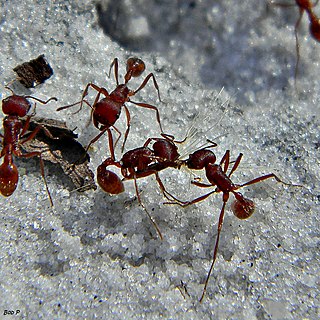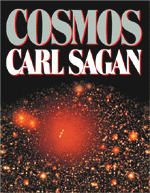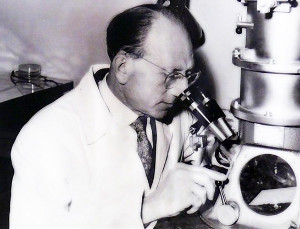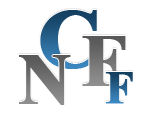Related Research Articles

The honey bee life cycle, here referring exclusively to the domesticated Western honey bee, depends greatly on their social structure.
The International Union of Prehistoric and Protohistoric Sciences is a learned society, linked through the International Council for Philosophy and Humanistic Studies to UNESCO, and concerned with the study of prehistory and protohistory. In the words of its constitution:

Harvester ant is a common name for any of the species or genera of ants that collect seeds, or mushrooms as in the case of Euprenolepis procera, which are stored in the nest in communal chambers called granaries. They are also referred to as agricultural ants. Seed harvesting by some desert ants is an adaptation to the lack of typical ant resources such as prey or honeydew from hemipterans. Harvester ants increase seed dispersal and protection, and provide nutrients that increase seedling survival of the desert plants. In addition, ants provide soil aeration through the creation of galleries and chambers, mix deep and upper layers of soil, and incorporate organic refuse into the soil.
Sahrawi Youth Union, also known by its Spanish acronym UJSARIO, is the youth organization of the Polisario Front.

Nicolaas Hendrik Kuiper was a Dutch mathematician, known for Kuiper's test and proving Kuiper's theorem. He also contributed to the Nash embedding theorem.

Cosmos is a popular science book written by astronomer and Pulitzer Prize-winning author Carl Sagan. It was published in 1980 as a companion piece to the PBS mini-series Cosmos: A Personal Voyage with which it was co-developed and intended to complement. Each of the book's 13 illustrated chapters corresponds to one of the 13 episodes of the television series. Just a few of the ideas explored in Cosmos include the history and mutual development of science and civilization, the nature of the Universe, human and robotic space exploration, the inner workings of the cell and the DNA that controls it, and the dangers and future implications of nuclear war. One of Sagan's main purposes for both the book and the television series was to explain complex scientific ideas in a way that anyone interested in learning can understand. Sagan also believed the television was one of the greatest teaching tools ever invented, so he wished to capitalize on his chance to educate the world. Spurred in part by the popularity of the TV series, Cosmos spent 50 weeks on the Publishers Weekly best-sellers list and 70 weeks on the New York Times Best Seller list to become the best-selling science book ever published at the time. In 1981, it received the Hugo Award for Best Non-Fiction Book. The unprecedented success of Cosmos ushered in a dramatic increase in visibility for science-themed literature. The success of the book also served to jumpstart Sagan's literary career. The sequel to Cosmos is Pale Blue Dot: A Vision of the Human Future in Space (1994).

The International Congress of Genealogical and Heraldic Sciences is a biennial conference discussing topics of heraldic and genealogical interest. The Congress brings together scholars and other interested persons from all the nations of Europe and from many countries around the world. The first Congress was held in Barcelona in 1929; at the second Congress, held in 1953, it was decided that future meetings would be held every two years.

Charles Duncan Michener was an American entomologist born in Pasadena, California. He was a leading expert on bees, his magnum opus being The Bees of the World published in 2000.

Sociality is the degree to which individuals in an animal population tend to associate in social groups (gregariousness) and form cooperative societies.
The International Union for Quaternary Research (INQUA) was founded in 1928. It has members from a number of scientific disciplines who study the environmental changes that occurred during the glacial ages, the last 2.6 million years. One goal of these investigators is to document the timing and patterns in past climatic changes to help understand the causes of changing climates.

Pierre-Paul Grassé was a French zoologist, writer of over 300 publications including the influential 52-volume Traité de Zoologie. He was an expert on termites who rejected Neo-Darwinism and was a proponent of Neo-Lamarckism.

Rhytidoponera is a large genus of ants in the subfamily Ectatomminae. The genus is known from Australia and Melanesia, with New Caledonia as the most eastern limit.

A gamergate is a mated worker ant that can reproduce sexually, i.e., lay fertilized eggs that will develop as females. In the vast majority of ant species, workers are sterile and gamergates are restricted to taxa where the workers have a functional sperm reservoir ('spermatheca'). In some species, gamergates reproduce in addition to winged queens, while in other species the queen caste has been completely replaced by gamergates. In gamergate species, all workers in a colony have similar reproductive potentials, but as a result of physical interactions, a dominance hierarchy is formed and only one or a few top-ranking workers can mate and produce eggs. Subsequently, however, aggression is no longer needed as gamergates secrete chemical signals that inform the other workers of their reproductive status in the colony.

The Union Internationale des Avocats (UIA) or International Association of Lawyers is an international non-governmental organisation, created in 1927, that brings together more than two million legal professionals from all over the world.

The National Council of French Women is a society formed in 1901 to promote women's rights. The first members were mainly prosperous women who believed in using non-violent means to obtain rights by presenting the justice of the cause. Issues in the first half century included the right to vote, legal equality between husband and wife, paternal child support, social support for children, equal employment opportunity, equal pay for equal work and acquisition of citizenship on marriage. The National Council of French Women is affiliated with the International Council of Women (ICW). Now the oldest of French feminist organizations, it continues to work for causes related to the rights of women.
The International Economic Association (IEA) is an NGO established in 1950, at the instigation of the Social Sciences Department of UNESCO. To date, the IEA still shares information and maintains consultative relations with UNESCO. In 1973 the IEA became a federated member of the International Social Science Council.
Albert Demangeon was a Professor of social geography at the Sorbonne in Paris for many years. He was an educator, a prolific author, and in the 1930s was the leading French academic in the field of human geography. He was a pioneer in the use of surveys to collect information on social questions.
The International Union of Game Biologists (IUGB) is a non-profit organisation with international membership. It has its legal domicile in Cernier, Switzerland. Bylaws were signed in Moscow in 2009.

Najla Bouden, also known as Najla Bouden Romdhane, is a Tunisian geologist and university professor who served as the prime minister of Tunisia from October 2021 to August 2023. She took office on 11 October 2021, making her the first female prime minister both in Tunisia and the Arab world. She previously served in the education ministry in 2011.

The International Congress of Ophthalmology, now known as the World Ophthalmology Congress is a biennial international scientific conference to promote ophthalmological science.
References
- ↑ Insectes Sociaux 1962, Volume 9, Issue 1, pp 101-102 IVe Congrès de l'Union
- ↑ "Treccani - la cultura italiana | Treccani, il portale del sapere".
- ↑ Insectes Sociaux 1957, Volume 4, Issue 4, pp 409-415 IIIe Congrès de l'Union Internationale pour l'Étude des Insectes Sociaux